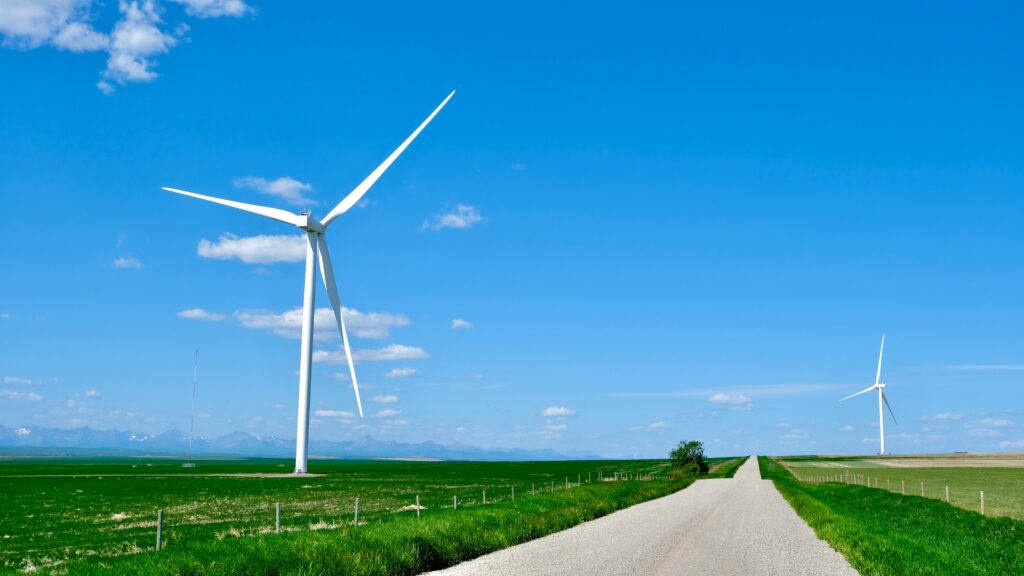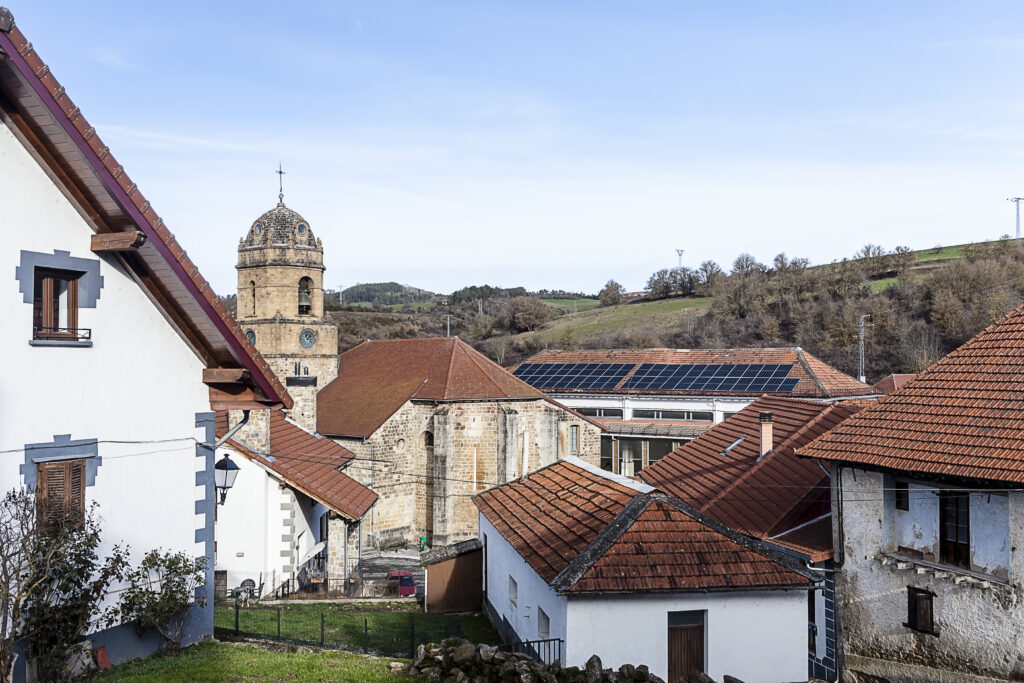When fossil fuel companies found out about the link between their product and climate change decades ago, they did everything they could to hide it. They lied, manipulated, and deceived.
Today, denying the reality of climate change isn’t as easy, and it is certainly more controversial. But that doesn’t mean climate deniers — fossil fuel companies, lobbyists, and their allies opposed to climate action — have moved past the lies.
As catastrophic fires spread across the world and large swathes of land are flooded by extreme weather events or threatened by sea-level rise, outright denial is no longer the most effective strategy, or these days, the most common.
To better understand today’s type of climate science denial we analyzed over 300,000 tweets from the past five years. Our social media analysis found that climate deniers have been promoting at least four major narratives based on drumming up fears of government control in order to prevent effective climate policies, particularly in the United States.
Our research found that climate denial has evolved into a softer, more insidious type of misinformation, one that focuses on denying urgency and action, one that targets the solutions more than anything else. Key elements of this strategy include promoting confusion, doomist perspectives, conspiracy theories, and fabricating lies to convince the public that there is no real need for climate change policy, certainly not at the scale of what scientists say is needed to avoid catastrophic impacts — basically, supporting any effort to postpone or halt ambitious climate action and protect business as usual.
According to John Cook, research fellow at Monash Climate Change Communication Research Hub in Australia, climate misinformation used to be more focused on undermining the science, but over time, the strategies have been moving more towards attacking solutions and creating fear, as well as leaning towards “cultural-war” type misinformation.
“It’s about scaring people and ‘othering’ people who care about climate change or who are concerned about climate change and advocating for action,” said Cook.
At its core, this new approach relies on fear. When the IPCC published its latest report in August 2021, the climate denial machine attempted to scale back the report’s urgency and gravity by promoting the fossil fuel–savior narrative: that oil has provided wealth and a higher quality of life, and that banning fossil fuels only endangers lives and “drives humanity back to medieval times.”
“It polarizes the public and then that makes it harder to get consensus and progress.”
— John Cook, climate misinformation expert
Of course, fear-mongering is as old as politics itself, but developments in the reach and power of social media, paired with a chaotic informational environment where disinformation runs amok, have made it easier for climate deniers to tap into the average person’s uncertainties.
Through disinformation and scare tactics, climate change deniers seek to create a sense of fear and insecurity around climate policies — suggesting that they will cost too much, require giving up personal freedoms, and enable the much-maligned system of socialism. In this way, climate deniers have linked political action on climate to the demise of conservative values, the loss of freedom, and, in extreme cases, global conspiracy theories.
Social media platforms have been a crucial tool for circulating anti-climate regulation propaganda. This is why, to analyze the evolution of climate-based fear tactics, we used the Twitter API, a tool for researching the platform’s historical archives, to collect a total of 300,545 tweets posted since the Paris climate accord was agreed — tweets between January 2016 and May 2021 — and which contain a number of commonly used denier hashtags such as #climatechangehoax, #climatechangeisfake, and #climatecult.
Then, using a topic modeling algorithm, we isolated four prevalent scare tactics among climate deniers, all based on the underlying fear of enhanced state control, for a total of 20,860 tweets.
The resulting data provides a clear snapshot of some of the most significant elements of recent climate denier narratives, and in particular, it shows how fear tactics have evolved to become central to contemporary climate change denial, both on and off social media.
Doomsday Scenarios
Mounting studies are finding that the costs of current and potential future climate change are massive, including for the U.S. Indeed, in 2020 the U.S. experienced an unprecedented number of billion-dollar disasters — 22 events wrought devastation across the country from heatwaves and drought to seven hurricanes.
In stark opposition to this fact, the first and most widespread scare tactic we identified in the data — appearing in over 40 percent of all posts containing scare tactics — presents a doomsday scenario narrative in which global economic systems are wrecked by climate change policies.
Exploiting widespread fears of recession, poverty, and higher taxation, tweets within this group often claim that climate policies will end up hurting the average household, which will be made poorer by environmental regulations.
The “higher-costs” narrative has also been applied by deniers to policy ideas such as the Green New Deal and, more recently, as we’ve already mentioned, to the latest IPCC report.
For instance, a widely circulated 2020 tweet claimed that the Green New Deal, a broad proposed environmental and social policy framework in the U.S., “would cost swing-states households around $75,000 in the first year,” as Fox News described. This “data” comes from a Competitive Enterprise Institute (CEI) publication where the libertarian think tank — which has received fossil fuel industry funding — used flawed assumptions and poor economic theory to claim that the policy would have an exorbitant cost higher than the median U.S. household income.
It’s not a deal, it’s an unrealistic pipe dream. The Green New Deal would cost every household $75,000 in the first year alone. That’s more than the average family makes each year!https://t.co/CyRAeJsZ9x
— Markwayne Mullin (@RepMullin) February 26, 2020
This approach creates an irrational sense of fear around policy ideas like the Green New Deal. However, CEI’s number is grossly overestimated, likely intended to steer the public away from endorsing climate policy. For example, the article claims that under one policy promoted in the Green New Deal known as deep energy retrofits — in short, energy conservation and efficiency measures for residential buildings — the average U.S. household will have to pay $40,240 up-front in the first year, as per data from the U.S. Department of Energy. But while this total figure is correct, it would be financed over a 30-year time frame. On top of this, the CEI article omits the fact that thanks to the savings generated by improved energy efficiency, the median cost to the average house would actually be a mere $1 per month over a 30-year period.
A last strand of doomsday scenarios based on the ‘higher costs’ narratives revolves around blackouts and energy shortages. While renewable-based energy systems have been proven to be perfectly capable of providing affordable clean energy, opponents claim that a greater diffusion of renewables will lead to higher risks of blackouts and energy shortages, in an attempt to convince the public that if society moves away from fossil fuels they are at risk of losing access to reliable electricity sources.
There is a lot of conflicting "information" about the TX blackouts. Here's the bottom line: the root cause of the TX blackouts is a national and state policy that has prioritized the adoption of unreliable wind/solar energy over reliable energy.
— Alex Epstein (@AlexEpstein) February 16, 2021
THREAD
A clear example of this blame-shifting game is evident in the Texas blackouts of February 2019. When natural gas pipelines froze, causing a state-wide blackout, the state saw nearly twice as many power failures from natural gas, goal, and nuclear compared to frozen wind turbines or solar panels.
But this didn’t stop fossil fuels advocates and fear mongers from trying to shift the blame onto renewable energies. Climate science critic Alex Epstein, for example, claimed that “the root cause of the TX blackouts is a national and state policy that has prioritized the adoption of unreliable wind/solar energy over reliable energy.”
A Trojan Horse to Socialism
Climate scientists agree that climate change is happening and is caused by human activity, namely by burning fossil fuels and cutting down forests. Scientific analyses also show that the world is on track for “disastrous” heating across the planet if nations fail to enact stronger climate policies.
Nevertheless, the second scare tactic we analyzed from this slice of tweets is based on the claim that climate change is a “trojan horse” meant to turn the United States into a communist or socialist regime. This argument is the most pervasive in our data in terms of both quantity and reach.
This scare tactic claims that climate policy was never about “fixing” the climate, but rather, about imposing a communist or socialist agenda. This conspiracy theory exploits decades-old “red threat” scares to polarize climate policy along political party lines, and is often propagated by well-known anti-climate change think tanks.
For example, a widely shared video featuring the Heartland Institute’s Jay Lehr claims that “environmentalism is the perfect set-up for a communist world government” and that climate policy is a form of population control, a dystopian plan whereby the United Nations would come to rule the world.
The weaponization of climate action as a “red threat” is not a new concept. After the Cold War, environmental “skepticism” skyrocketed in the U.S.: it was the very emergence of a global environmental concern stimulated by the 1992 Rio Earth Summit that put environmental protection on the climate denier map.
The collapse of the Soviet Union in the 1990s, together with the Rio summit, led conservatives to substitute the disappearing “red threat” for the new “green threat” — communists now overlapped with environmentalists. The fossil fuel industry and conservative activists set up various lobby groups to prevent the passing of government regulation to curb climate pollution, such as the Global Climate Coalition or the Information Council for the Environment to name a couple.
A Threat to Hamburgers
A major source of greenhouse gas emissions comes from agriculture, including the methane from burping cows and their manure ponds. To address this pollution, the Green New Deal resolution introduced by Congressional Democrats in 2019 called for “working collaboratively with farmers and ranchers in the United States to remove pollution and greenhouse gas emissions from the agricultural sector as much as is technologically feasible.” There was no mention of banning burgers.
However, critics of the Green New Deal seized on a fact sheet about it (that was later withdrawn), which mentioned it would be difficult to “get rid of farting cows.” As a result, the third prominent fear tactic we identified among tweets from over the past five years centers on claims that climate policy will be used by “alarmists” — which is how deniers brand environmentalists, climate scientists, or anyone who pushes for climate action — to “take away America’s burgers.”
This narrative — the least common scare tactic in our data — is based on the idea that climate policy will ultimately lead to a ban on meat consumption. This argument is often used to radicalize the denier front and further polarize political debate. In this scenario, climate activists are oppressive, undemocratic, and keen on dictating what citizens are and aren’t allowed to do or, in this case, eat.
Tweets containing this type of narrative are overcome with a clear and immediate sense of fear: several Twitter users go as far as urging others to “get an extra freezer and buy meat, as prices are going to soar.”
Get an extra freezer and buy meat. Prices are going to soar. #BidenMeatCrisis #ClimateChangeHoax
— Nurse Patriot (@LABeachGal1) April 28, 2021
Other claims of this kind include racist arguments, such as one in which the suggestion to eat less meat is actually an excuse to reclaim land and replace it with low-income housing, serving to motivate others to fight against this planned urban sprawl.
According to Cook, cultural misinformation — such as the socialism and the burger arguments — is probably the most dangerous because it includes “tribal arguments” which “tap into very primal instincts of people”.
“The simple myths tend to resonate more rather than complicated scientific myths or arguments,” said Cook. “It polarizes the public and then that makes it harder to get consensus and progress.”
Full-on Conspiracy Theories
Climate change deniers have often been shown to be attracted or vulnerable to conspiratorial thinking, and the final narrative we detected is the most extreme, as it exploits a tendency to create an alternative world which is very far from facts and allows deniers to avoid facing reality.
The fourth scare tactic we found relies on the assumption that the ultimate goal of climate policies is to trigger a society-wide “Great Reset,” which will, in turn, lead to a totalitarian new world order.
Drawing from the same conspiracy theories on hidden governments and deep states that fueled the rise of QAnon, this fear tactic claims that climate policy is part of a large-scale plan for world control, depopulation, and technological dominance. It often depicts images of a technological dystopia where machines run the world and human life has no value.
Many of the tweets in this category claim that any observable changes to the climate system are, rather than the logical result of centuries of humans releasing greenhouse gases, the result of governments manipulating the weather.
Some go as far as mentioning the idea of a “Great Reset,” a conspiracy theory which originates from a 2020 World Economic Forum plan aimed at managing the consequences of Covid-19, which was distorted and twisted by conspiracists to represent a plan of global domination rather than a roadmap for recovery from the impacts of a deadly virus that has claimed the lives of millions.
Denier discussions in this area include the idea that the public is being brainwashed by “global elites” and that these efforts should be criminalized. Conspiracy theories are also falsely claiming that Covid-19 was a tool intended to reduce the world’s population as part of a larger climate change plan. Depopulation is where Covid-19 and climate change denial conspiracy theories meet.
While some of these scare tactics may sound imaginative at best — and perhaps delusional at their worst — they do contain key insights into the climate change denial of today. These days, the merchants of doubt are seeding a different type of disinformation, focusing less on denying the basic science, and more on creating unrealistic, polarizing, and politicized debates to convince the public that climate action is unnecessary and, most times, outright harmful.
As our analysis demonstrates, narratives of denial and fear tactics are deeply interlinked, making them a dangerous self-feeding mechanism. This means that these tactics overlap within the tweets themselves — one tweet may contain elements from more than one scare tactic.
Climate change, socialism, Covid-19, a new world order, and meat bans are all different sides of the same denial coin. And the message is a simple one: climate change is a dangerous plot to limit individual liberty, depopulate the Earth, and destroy national governments. In this scenario, discussing science is no longer relevant — climate change becomes exclusively a political matter, completely removed from science or facts.
The more we see climate action become a part of serious policymaking discussions, the more we can expect these types of fear tactics to become relevant. In fact, we saw in our data that use of these fear tactics always spiked around climate protests and key political moments, such as the 2019 proposal for the Green New Deal in the U.S. Senate and the September climate strikes that same year, also known as the Global Week for Future.
Whenever climate policy is under the spotlight, deniers fight back by spreading fear and uncertainty. It is fundamental to work towards breaking this link and expose the mechanisms behind these fabricated narratives, ultimately avoiding climate policy from being seen as catastrophic and divisive and making climate action more resilient to the disruption efforts of the climate denial machine.
“The general strategy against any form of misinformation is to explain to people how they’re being misled because, no matter where people sit on the political spectrum, everyone is averse to being tricked,” said Cook. “No one likes being deceived. So if you explain why there is a strategy that is being used to manipulate you, you can neutralize the strategy.”
Subscribe to our newsletter
Stay up to date with DeSmog news and alerts







